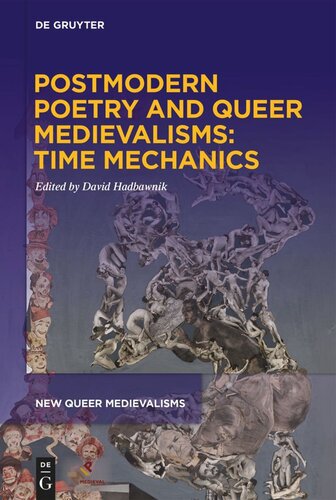

Most ebook files are in PDF format, so you can easily read them using various software such as Foxit Reader or directly on the Google Chrome browser.
Some ebook files are released by publishers in other formats such as .awz, .mobi, .epub, .fb2, etc. You may need to install specific software to read these formats on mobile/PC, such as Calibre.
Please read the tutorial at this link: https://ebookbell.com/faq
We offer FREE conversion to the popular formats you request; however, this may take some time. Therefore, right after payment, please email us, and we will try to provide the service as quickly as possible.
For some exceptional file formats or broken links (if any), please refrain from opening any disputes. Instead, email us first, and we will try to assist within a maximum of 6 hours.
EbookBell Team

0.0
0 reviewsNow in Paperback
This volume builds on recent scholarship on contemporary poetry in relation to medieval literature, focusing on postmodern poets who work with the medieval in a variety of ways. Such recent projects invert or “queer” the usual transactional nature of engagements with older forms of literature, in which readers are asked to exchange some small measure of bewilderment at archaic language or forms for a sense of having experienced a medieval text. The poets under consideration in this volume demand that readers grapple with the ways in which we are still “medieval” – in other words, the ways in which the questions posed by their medieval source material still reverberate and hold relevance for today’s world. They do so by challenging the primacy of present over past, toppling the categories of old and new, and suggesting new interpretive frameworks for contemporary and medieval poetry alike.